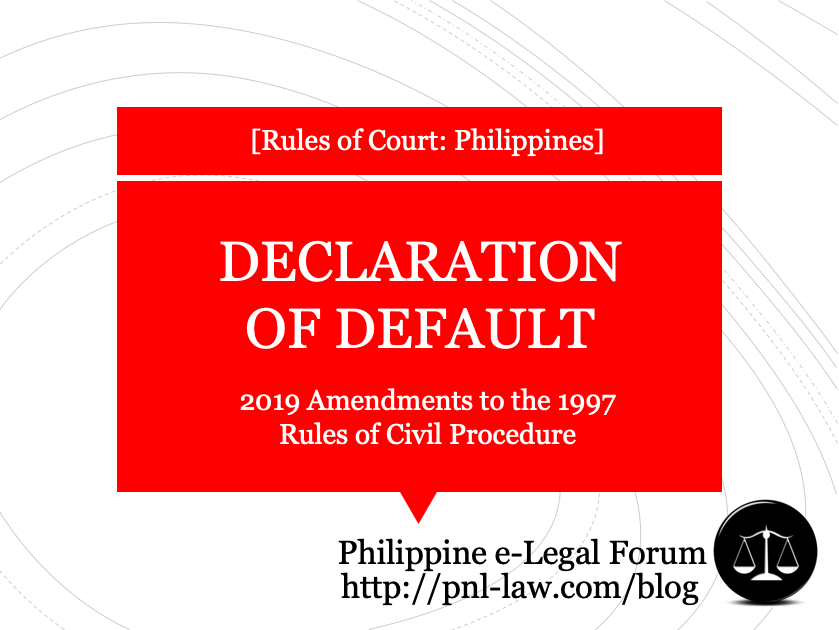


If the defending party fails to answer within the time allowed therefor, the court shall, upon motion of the claiming party with notice to the defending party, and proof of such failure, declare the defending party in default. Thereupon, the court shall proceed to render judgment granting the claimant such relief as his or her pleading may warrant, unless the court in its discretion requires the claimant to submit evidence. Such reception of evidence may be delegated to the clerk of court.
 1997 Rules of Civil Procedure" width="839" height="630" />
1997 Rules of Civil Procedure" width="839" height="630" />
There is practically no change on the provisions on default in Rule 9 of the 2019 Amendments to the 1997 Rules of Procedure (hereinafter, “2019 Amendments”), except the provision on failure to answer in annulment or declaration of nullity cases, wherein the court shall oder the Solicitor General or his/her deputized public prosecutor to intervene for the State. The directive is addressed to the “prosecuting attorney” in the old 1997 Rules. [Note: A motion to declare the defendant in default is a litigious motion, but hearing on the motion is discretionary. See Rules on Motion.] The 2019 Amendments takes effect on 1 May 2020.
A party in default shall be entitled to notices of subsequent proceedings but shall not take part in the trial.
A party declared in default may at any time after notice thereof and before judgment, file a motion under oath to set aside the order of default upon proper showing that his or her failure to answer was due to fraud, accident, mistake or excusable negligence and that he or she has a meritorious defense. In such case, the order of default may be set aside on such terms and conditions as the judge may impose in the interest of justice.
When a pleading asserting a claim states a common cause of action against several defending parties, some of whom answer and the others fail to do so, the court shall try the case against all upon the answers thus filed and render judgment upon the evidence presented.
A judgment rendered against a party in default shall neither exceed the amount or be different in kind from that prayed for nor award unliquidated damages.
If the defending party in an action for annulment or declaration of nullity of marriage or for legal separation fails to answer, the court shall order the Solicitor General or his or her deputized public prosecutor, to investigate whether or not a collusion between the parties exists, and if there is no collusion, to intervene for the State in order to see to it that the evidence submitted is not fabricated.

Atty. Fred Pamaos is a member of P&L Law (click on photo/name for profile). No legal advice is given in this forum. For other questions, use the "Contact Us" link.
